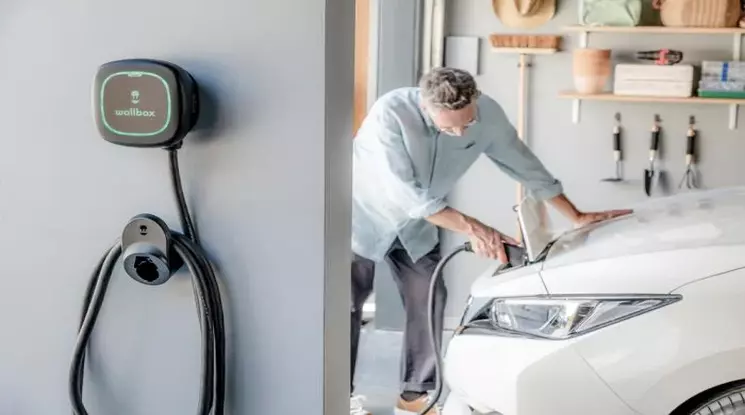The era of sustainable transportation is upon us, and electric cars have emerged as one of the most promising solutions to combat climate change and reduce our dependence on fossil fuels. However, as electric vehicles (EVs) become more popular, questions about their environmental impact and energy sources have come to the forefront. One key aspect of EV ownership is the method used to charge them, and solar power is increasingly seen as a clean and efficient way to do so. In this blog, we will explore the question: How many solar panels do you need to charge your electric car?
Solar Power and Electric Cars: A Perfect Match
Electric cars are undoubtedly a major leap towards reducing greenhouse gas emissions and mitigating air pollution. They offer numerous benefits, including lower operational costs, reduced noise pollution, and a decreased reliance on fossil fuels. Yet, the source of energy used to charge an electric car plays a crucial role in determining its overall environmental impact.
Solar power Virginia is an ideal energy source for electric vehicles because it is clean, renewable, and abundant. When your EV is charged using electricity generated from solar panels, you are effectively driving on sunshine. This not only reduces your carbon footprint but also provides energy independence and potential savings on your energy bills. So, how many solar panels do you need to harness the power of the sun for your electric car?
Calculating Solar Panel Requirements
To determine the number of solar panels required to charge your electric car, several factors must be taken into account:
Your Car’s Battery Capacity: The size of your car’s battery will determine how much energy is needed for a full charge. Different EV models have varying battery capacities, so it’s essential to know your specific car’s specifications.
Daily Driving Habits: How much you drive your electric car on a daily basis will affect your charging needs. If you have a long daily commute, you’ll need more energy and, consequently, more solar panels.
Local Solar Conditions: The amount of sunlight your location receives throughout the year is another crucial factor. Areas with more sunlight can generate more energy from solar panels, making it easier to meet your electric car’s charging needs.
Efficiency and Losses: Solar panels are not 100% efficient, and there are losses in the energy conversion process. Typically, solar panels have an efficiency rating ranging from 15% to 22%, depending on the quality and type of panels used.
Charging Time: The time you have available to charge your EV can influence the number of panels needed. If you can charge your car overnight, you may need fewer panels than someone who needs to charge during the day.
Battery Charging Rate: Electric cars come with different charging rates. Some can accept faster charging speeds, which means they can draw more power in a shorter time. This can affect your solar panel requirements.
Example Calculation
Let’s consider an example to illustrate the calculation process. Suppose you have a popular electric car model with a 60 kWh battery capacity. On average, you drive 40 miles per day and need to charge your car fully every three days. Your solar panels have an efficiency rating of 18%, and your location receives an average of 4 hours of direct sunlight per day.
Determine your daily energy consumption: 60 kWh (battery capacity) / 3 days = 20 kWh per day.
Calculate your daily mileage: 40 miles per day.
Estimate your car’s energy consumption per mile: 20 kWh / 40 miles = 0.5 kWh/mile.
Calculate daily solar panel output: 4 hours of sunlight x 18% efficiency = 0.72 kWh/day per panel.
Determine the number of solar panels needed: 20 kWh/day / 0.72 kWh/day per panel = approximately 28 panels.
Conclusion
The number of solar panels you need to charge your electric car depends on various factors, including your car’s battery capacity, daily driving habits, local solar conditions, panel efficiency, charging time, and battery charging rate. In our example, you would need around 28 solar panels to meet the daily charging needs of your electric car.
It’s important to remember that this is a simplified calculation, and real-world scenarios can be more complex. Additionally, you may choose to install a solar energy system that covers your household’s needs, including your electric car. In this case, the number of panels required will be higher.
Transitioning to electric vehicles and renewable energy sources like solar company virginia is a significant step toward a more sustainable future. By carefully assessing your specific circumstances and energy requirements, you can determine the right number of solar panels to meet your electric car charging needs while reducing your carbon footprint and energy costs.




